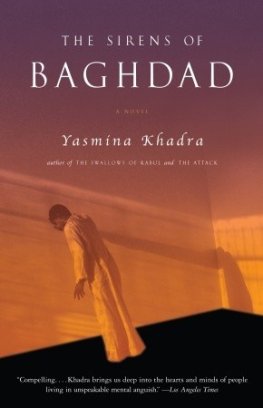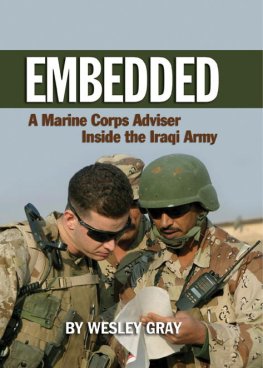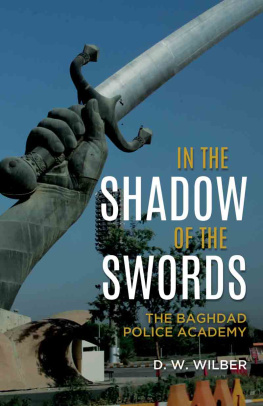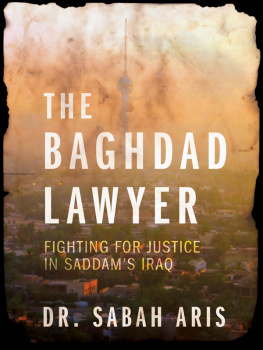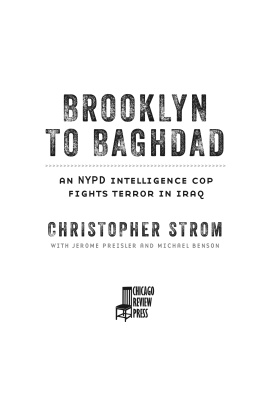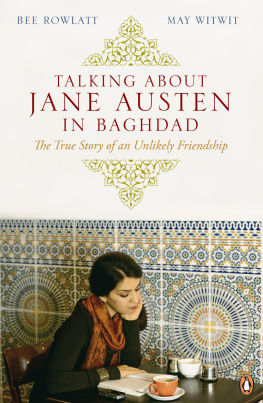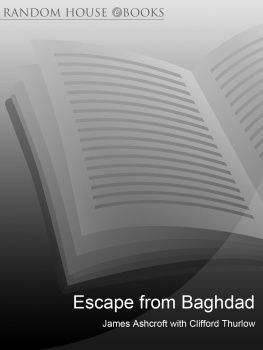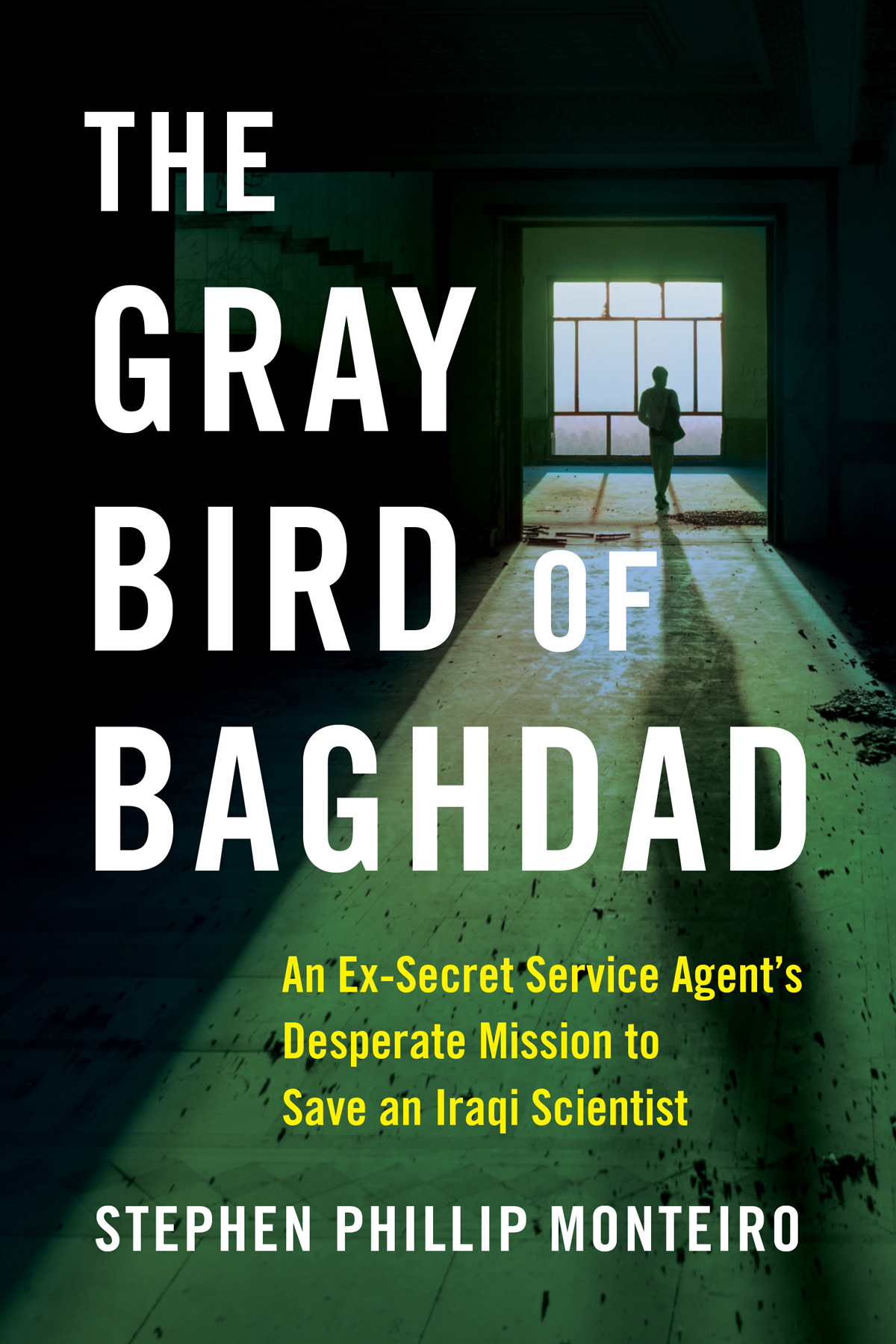Contents
Guide
List of Figures
Pagebreaks of the Print Version
PRAISE FOR THE GRAY BIRD OF BAGHDAD
Steve Monteiro deftly leads the reader through the halls of power in Washington, the sands of the desert in Iraq, and the steamy beaches of South Florida in a true tale of patriotism and international intrigue. The risks to life and country are real. The telling of the story is honest and personal. The story of the rescue of one of Saddam Husseins bio-weaponeers and his contribution to US national security, and of a team led by a true-life secret agent, will have you on the edge of your seat.
KIMOTHY SMITH, DVM, PhD, former Senior Advisor for International Biodefense, US Department of Homeland Security
Stephen Monteiros The Gray Gird of Baghdad is a satisfying read on many levels. It is a page-turning story of a mission to rescue an Iraqi scientist, an in-depth look at wars innocent victims and the destructive tugs of bureaucracy, and, most important of all, a heart-warming story of an unusual friendship.
LINDA CASHDAN, former journalist, Voice of America, and author of Special Interests
Stephen Monteiros masterful memoir is more than a page-turning manhunt for a missing Iraqi scientist. It is also a soberingand sadexpos of bureaucratic turf wars and political infighting that seemed determined to prevent him and his team from succeedingand thus confirming uncomfortable truths about Saddam Husseins biological warfare program. By focusing on one mission involving just one scientist, Monteiro has contributed greatly to our understanding of Americas costly war in Iraq.
MEL LAYTNER, former foreign correspondent for NBC News and United Press International and author of What They Didnt Burn
THE
GRAY
BIRD OF
BAGHDAD
An Ex-Secret Service Agents Desperate Mission to Save an Iraqi Scientist
STEPHEN PHILLIP MONTEIRO

Copyright 2022, Stephen Phillip Monteiro
All rights reserved. No part of this publication may be reproduced, distributed, or transmitted in any form or by any means, including photocopying, recording, digital scanning, or other electronic or mechanical methods, without the prior written permission of the publisher, except in the case of brief quotations embodied in critical reviews and certain other noncommercial uses permitted by copyright law. For permission requests, please address SparkPress.
Published by SparkPress, a BookSparks imprint,
A division of SparkPoint Studio, LLC
Phoenix, Arizona, USA, 85007
www.gosparkpress.com
Published 2022
Printed in the United States of America
Print ISBN: 978-1-68463-151-3
E-ISBN: 978-1-68463-152-0
Library of Congress Control Number: 2022904510
Interior design by Tabitha Lahr
All company and/or product names may be trade names, logos, trademarks, and/or registered trademarks and are the property of their respective owners.
Names and identifying characteristics have been changed to protect the privacy of certain individuals.
For my wife, Carmela,
and my sons, Ryan and Jared, who put up with my antics,
absences, and crazy moods I love you and thank you.
And for my wonderful parents, George and Emily, to whom I owe everything.
War demands sacrifice of the people. It gives only suffering in return.
FREDERIC CLEMSON HOWE
AUTHORS NOTE
THE EVENTS DESCRIBED IN THIS book are real. The books primary events spanned an eight-year period, from 2001 to 2008, and took place in Iraq, Syria, New York City, Virginia, Florida, and Washington, DC. The names of some of those in the story have been altered for their safety and out of respect for their privacy. Ive omitted some details that make them identifiable.
Ive endeavored to keep the dates, times, and basic events in this book as accurate as possible; however, given the dynamics of the violent conditions in Iraq during that time period, and the difficulty of recalling specific details during such an extensive time span, gaps and inaccuracies may exist. The dialogue throughout does not come from audio recordings or transcripts, and is not meant to be taken as verbatim, but rather as recreations of this storys facts and experiences as Thamer and I remember them.
Chapter 1 BAGHDAD, IRAQMARCH 2003
THEY HUDDLED UNDER THE STAIRWELL, Thamer, his wife, and their three children, sick with fear as they listened to the low rumble of bombs in the distance. Death was not far beyond their door, and they all knew that at any moment they might hear its knock. So they prayed. For a moment Thamer Imran cursed himselfhe could have sent his family north to Erbil where it was safer. But no, he really couldnt have. Splitting up the family wasnt an option. If death was coming, they would die together.
Earlier that day, in the wee hours of March 20, 2003, Thamer Abdul Rahman Imran woke to the undeniable blasting sounds of his country, his city, his home under attack. It was the first day of the Iraq War.
Thamer lived in a small, but respectable, two-bedroom home in Al-Basateen Hay, a quiet Baghdad neighborhood in the Al-Shaab district, where most residents were government employees or military officers. Thamer was proud to live among people of education and achievement. More than that, he was grateful that his neighbors were more than mere acquaintances who exchanged casual hellos, but instead were warm friends who enjoyed spending a Saturday evening sharing a meal, helping each other with their vegetable and fruit gardens, and offering another set of eyes under the hood.
There in the dark morning hours when America and its allies invaded Baghdad, Thamer felt a pang for the hard work it had taken him to reach this place. He dreaded that at any moment this life he built and everyone in it might be blown off the map. It would be hours before they all returned to their beds, and almost dawn by the time he and Eman fell asleep, holding each other in the smoky, nighttime glow of the invasion.
Although Thamer was a jovial man, he was by no means a simple man. Thamer was a microbiologist for Iraqs National Monitoring Directorate, which had been established to work directly with the United Nations Special Commissiona commission created after the first Gulf War to ensure Iraq didnt develop weapons of mass destruction. Thamers job sounded ominous, but to him, it was like any other position in Iraqs Military Industrialization Corporation; the job offered a degree of stability to a non-political man in a country where most good jobs went to those fiercely loyal to the regime. Thamer had the training and the skills for his post, but he also possessed another very important skill, a secret skill. One that was different from that of his colleagues. It was not a skill he chose but it was one that would come to upset his life in ways unimaginable.
Although Thamer was a thinking man, he wasnt political. If he had thoughts about Saddam Hussein or negative thoughts about Iraq in general, he kept them to himselfas any astute employee of the Iraq government would. Or any smart Iraqi. Saddams barbarity was well documented and started as soon as he became president in 1979 with his purge of the Iraqi parliament. His enemies real or perceived were imprisoned, tortured, murdered, or they just plain disappeared. Thamer was careful. He knew the wrong word to the wrong person could be fatal in the brutal dictatorship that engulfed Iraq.


